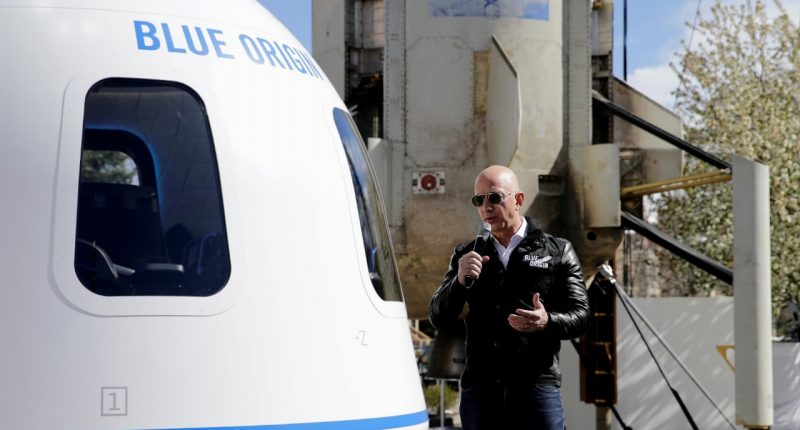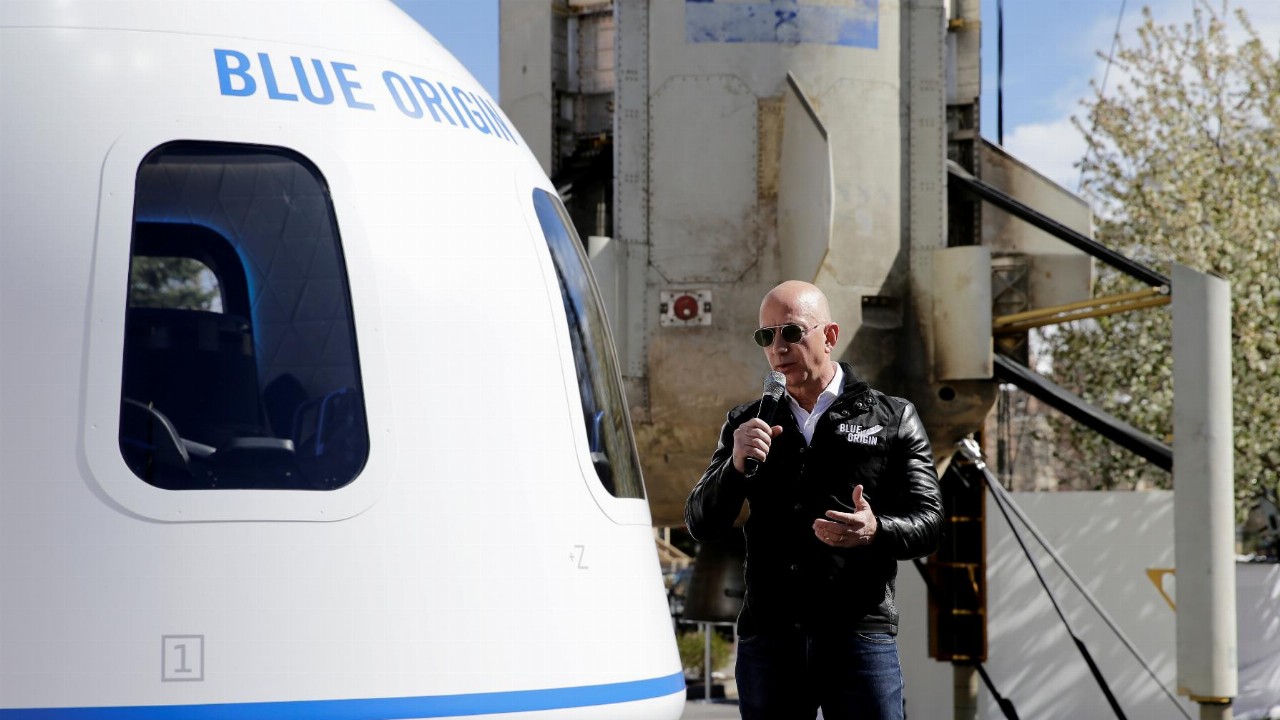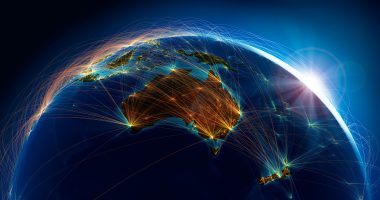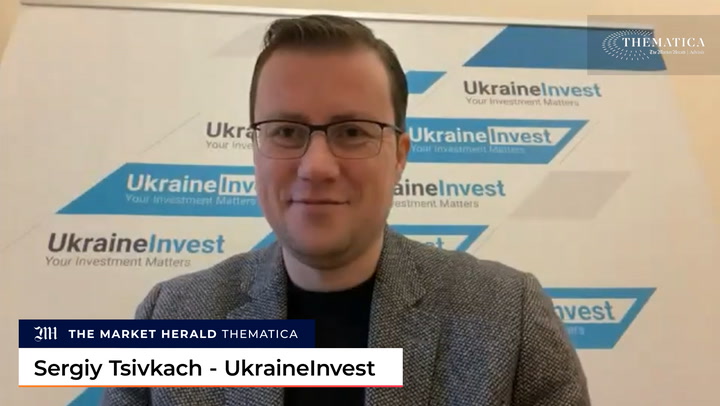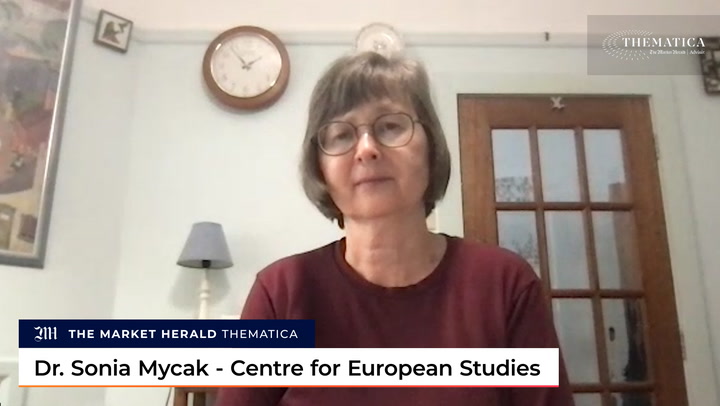- Jeff Bezos’ space company, Blue Origin, has pegged July 20 for its first suborbital sightseeing trip on its New Shepard spacecraft
- The company also said on Wednesday it would offer one seat to the winner of a five-week online auction
- The New Shepard has been designed to fly six passengers more than 100 kilometres above Earth — just high enough to experience a few minutes of weightlessness
- After the first flight, Blue Origin expects to carry out several more flights before the end of the year, although exact ticket prices are not yet known
- For July’s flight, the reusable New Shepard booster will launch and land in West Texas
Jeff Bezos’ space company, Blue Origin, has pegged July 20 for its first suborbital sightseeing trip on its New Shepard spacecraft, adding further traction to a new era of commercial space travel.
The company also said on Wednesday it would offer one seat to the winner of a five-week online auction, with the proceeds to be donated to Blue Origin’s foundation.
The New Shepard rocket-and-capsule combo has been designed to autonomously fly six passengers more than 100 kilometres above Earth — just high enough to experience a few minutes of weightlessness and see the planet’s curvature before returning with the use of parachutes.
It features six observation windows, which Blue Origin said were almost three times taller than those on a Boeing 747 and the largest ever used in space.
“The view will be spectacular,” said Ariane Cornell, Blue Origin’s Director of Astronaut Sales.
Cornell added that, after its first flight in July, Blue Origin would carry out “a couple more” before the end of the year, but declined to reveal any information as to how much a seat on those flights would cost.
In 2018 — based on an appraisal of rival plans from billionaire Richard Branson’s Virgin Galactic — reports surfaced that Blue Origin was planning to charge passengers at least US$200,000 (roughly A$258,000) for the ride, but it’s not known if that’s still the case.
Still, Cornell said Blue Origin would “love” to increase the frequency of its tourist spaceflights and add other launch locations, possibly outside the United States, depending on demand.
For July’s flight, the reusable New Shepard booster will launch and land in West Texas.
Only 569 people had ever been into space, Cornell said, adding that “we’re about to change that dramatically.”
Virgin Galactic is also aiming to fly private customers in early 2022, after an initial flight with Branson on board later this year. The company said it would charge more than US$250,000 (roughly A$322,000) for tickets, with sales to reopen following Branson’s trip.
Meanwhile, a four-person crew — including a college science professor and an aerospace data analyst — is preparing for a launch into orbit later this year with Elon Musk’s SpaceX as part of a charity drive billed as the first all-civilian spaceflight in history.

